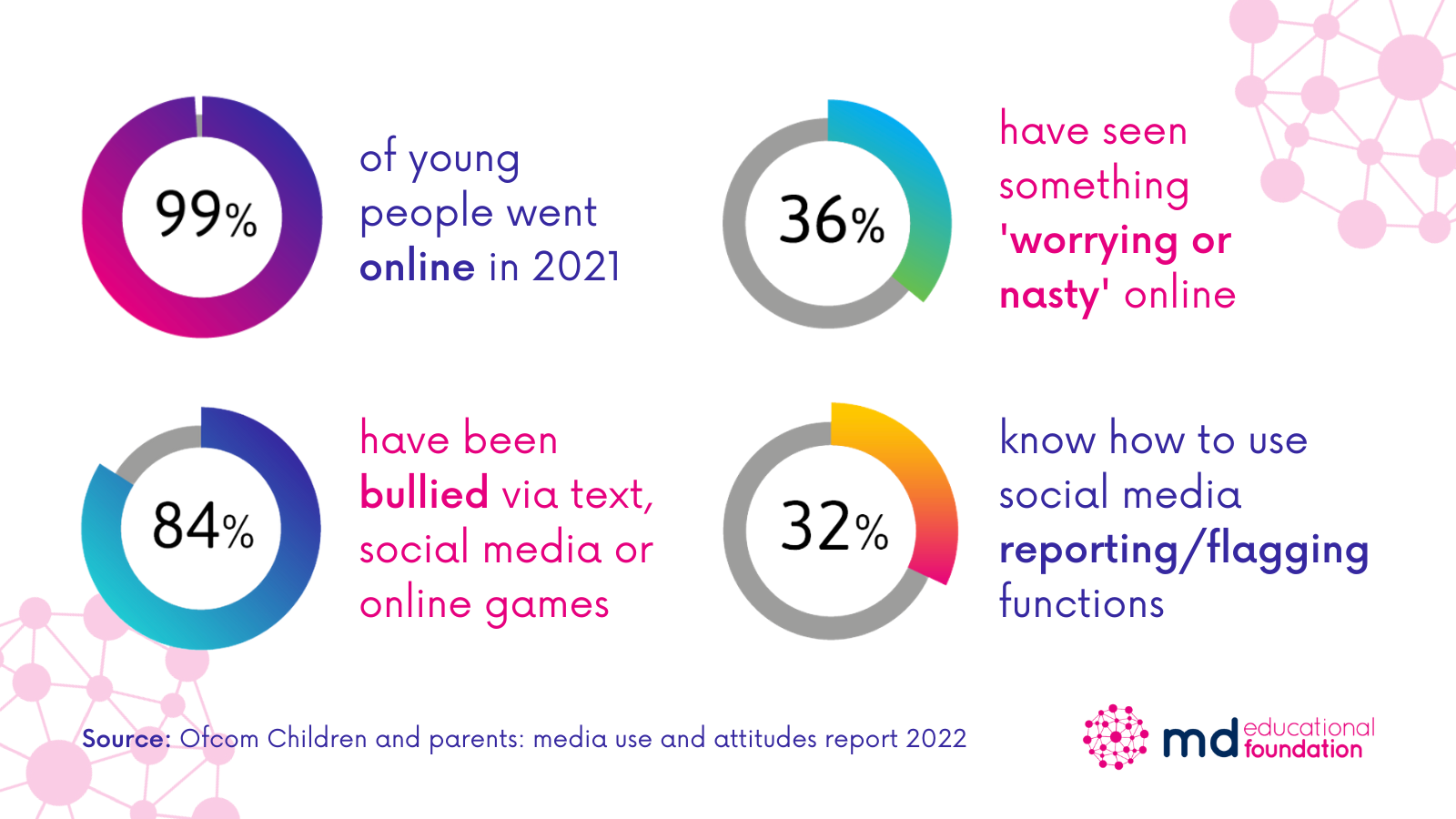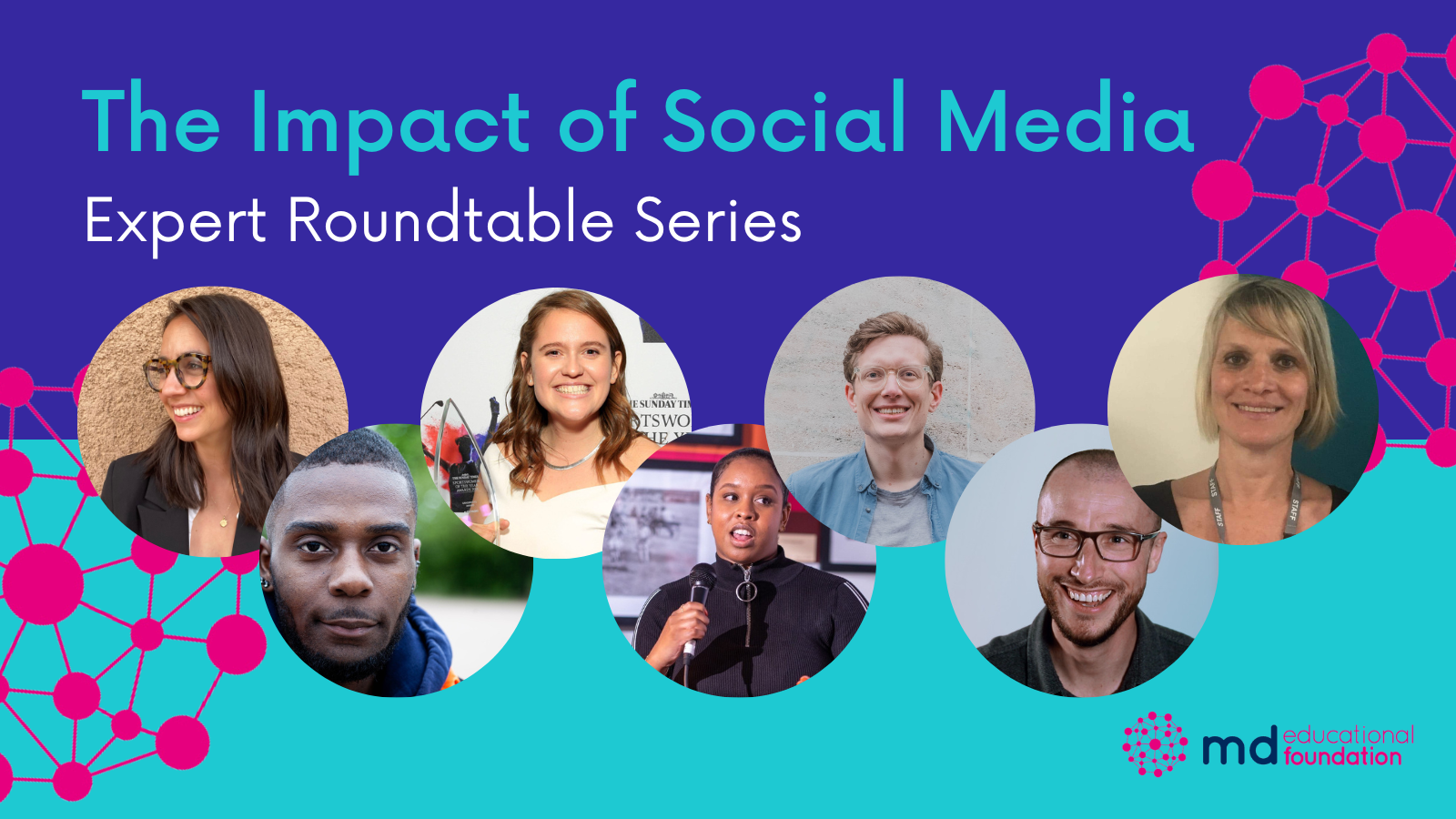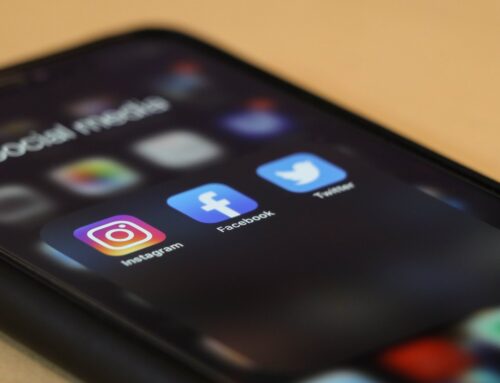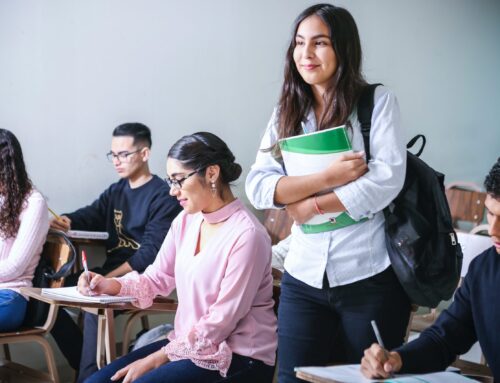Social media is an unavoidable part of young people’s lives. Its rapid growth over the past decade has completely transformed the way young people connect and engage with each other.
Whilst there are undeniable benefits to social networking, such as discovering supportive communities and uncovering new perspectives, the rise in social media use amongst young people has also been associated with an increase in self-harm and feelings of depression.
Young people’s social media use and attitudes
According to a 2022 report from Ofcom which looked at social media use, attitudes and understanding among children up to age 17:

- 99% of young people went online in 2021 with 95% preferring video platforms such as YouTube and TikTok
- More than one-third of children aged 8-17 said they had seen something ‘worrying or nasty’ online in the past year (yet only 59% said they would tell someone)
- Children aged 8-17 were more likely to experience online bullying than face-to-face – 84% said they had been bullied via text, social media messaging or online games compared to 61% being bullied face-to-face
- Only 32% of children said they knew how to use online reporting or flagging functions and just 14% said they had used them
Making social media kinder and safer for young people
Established in memory of TV presenter Caroline Flack, Wednesday 9th November marks Social Media Kindness Day. This annual awareness day aims to raise awareness of the impact of online bullying and promote positive online behaviour.
Ahead of this year’s campaign, we invited mental health experts to join us for a discussion on the impact of social media, how we can protect young people’s mental health and what we can all do to make social networks a kinder, safer space.
Meet our roundtable experts
- Michael Crinnion – Founder of Mind-Body Goals Ltd and creator of Luma3, a mindful cube backed by science for students
- Jo Holmes – Children, Young People & Families Lead at the British Association for Counselling and Psychotherapy (BACP)
- Kadra Abdinasir – Associate Director of Children & Young People’s Mental Health
- Dr Nicholas Prior – CEO & Co-Founder of Minderful, supporting people to look after their mind easily through activities and resources, and NHS Doctor with lived experience of Bipolar (type II)
- Alex Wallace – Founder of The Mintridge Foundation, harnessing the power of sporting role models to positively influence young people
- Antonio Ferreira – Prolific mental health activist and expert through lived experience, public speaker, disruptor, anti-racism campaigner
- Louisa Rose – CEO of youth mental health charity Beyond and founder of Now and Beyond – a free, national mental health festival for the educational community
Key takeaways from the roundtable
Benefits and risks of social media for young people
The conversation began with Louisa Rose, CEO of Beyond, stating that social media is not inherently bad: “It’s the dependencies people have upon it that create the negative impact.”
Louisa highlighted the positive sense of community that many marginalised individuals have found via social media groups and concluded that many issues arise due to a lack of education about digital wellbeing.
Alex Wallace, Founder of The Mintridge Foundation, agreed there are positive benefits of social media. She spoke about how social platforms increase the visibility of marginalised groups, allowing young people to discover more about other people and broaden their interests.
However, Alex expressed concern about how young people’s sense of self-worth can be impacted by social media, especially if they are seeking validation and acceptance through ‘Likes’.
Embedding digital wellbeing into education
Jo Holmes from BACP asserted that the best way to embed digital wellbeing into schools would be to do away with terms such as ‘internet safety’ and enforced education through PHSE lessons.
Instead, Jo reasoned that young people need opportunities to break down and explore these issues themselves and find their own solutions. She also noted that adults and policymakers have a significant role to play in modelling better online behaviour themselves, such as encouraging young people to ‘unfollow’ accounts which have a negative impact on their mental health, or using Do Not Disturb functions to encourage time away from social media.
Kadra Abdinasir, Associate Director of Children & Young People’s Mental Health, described the ‘compare and despair’ mindset created when young people spend a lot of time looking at images on social media. She also spoke about how social media creates ‘the perfect storm’ for the development of negative mindsets, and encouragingly shared that she has been working with social media companies to develop tools which encourage young people to switch off after a set period of time.
Dr Nicholas Prior, CEO & Co-Founder of Minderful, noted the scale of the challenge mental health campaigners are up against and that – ultimately – social media companies make their money through encouraging people to keep scrolling and engaging. He stated: “Any efforts made by social media platforms to reduce the amount of time young people spend online, therefore, need to be taken with a healthy dose of scepticism.”
Michael Crinnion, Founder of Mind-Body Goals Ltd, also highlighted how the algorithms used by social media companies are specifically designed to hook young people in. He argues that one of the most helpful things we can do is to share this insight with young people and help them “beat the algorithm” by unfollowing accounts or scrolling past content they recognise as toxic.
Michael argues that if young people are educated on these facts, it could have a significant impact on how they choose to consume and engage with content.
The role of social media in the self-diagnosis of mental health illness in young people
Louisa Rose noted that one of the most positive benefits to arise from social media in recent years is the awareness and de-stigmatisation of mental health conditions through online conversations. However, she cautions that this may also lead to “an over-diagnosis of mental health illnesses, and an over-diagnosed population.”
Kadra said that lack of structural mental health support – such as community hubs – in the real world is one of the main reasons young people are turning to social media for help.
Kadra also highlighted how we are seeing a growing number of experienced healthcare professionals using their own social media platforms to debunk myths and counter harmful narratives.
Activist and campaigner Antonio Ferreira shared a helpful analogy, suggesting young people should view their social media usage like a “digital diet”. He explained: “It’s about how you spend your time online, not how much.”
Antonio outlined how, in the same way that a balanced plate of food would include protein, carbohydrates and vegetables, we should aim to balance our digital time. For example, allocating a portion of time for education, entertainment, speaking with friends, etc.
The panel also discussed how the government’s Online Safety Bill could go further to protect young people through systemic change, such as requiring large companies to nominate a named individual responsible for safeguarding.
How parents and carers can feel empowered to be role models
The panel agreed that as adults, we need to take a hard look at our own digital habits. This might feel uncomfortable, but it’s a necessary place to start as role modelling for young people is one of the most powerful ways to bring about change.
Louisa Rose advocates that parents proactively work with their children to look at their online habits together – for example, comparing daily or weekly screen time – and coming up with a plan of action and agreeing on commitments together.
When parents are worried about their children’s social media use
Michael Crinnion offered his personal strategy for parents who are worried about how their child is using social media.
He suggested using real-world analogies for online behaviours and asking yourself whether this is something you would monitor in real life. For example, you wouldn’t let your child go to a party alone if you didn’t know who was there or where the party was.
Michael concluded: “As a parent, you would keep them safe. And you have to do the same online by sharing the experience with them.”
Louisa agreed parents need to have open and frank conversations with their children which encourage honesty. She explained how important it is to be vulnerable and share the issues and challenges you’ve faced in managing your relationship with social media.
In terms of privacy, Jo Holmes advised thinking about social media like your front door – you wouldn’t want to give everyone the key and online you should protect your privacy in the same way.
Honesty is the best social media policy
In conclusion, Louisa Rose offered these helpful tips for parents to encourage healthier social media use:
- Keep the conversation going. Make time to have open and honest conversations about social media with your children. Be willing to ask yourself uncomfortable questions about screen time etc. and use your honesty to engage with them.
- Create phone-free zones. For example, don’t charge your phone by your bed, or use it as an alarm clock or watch. Create agreements as a family such as not using phones at the dinner table or while watching TV together. Reducing our digital dependency is easier when we’re not being regularly drawn into an online gateway.
Social media toolkit for parents
- Social media guides – UK Safer Internet Centre
- Safety and Security Online | SWGfL
- R;pple | Install
- Minderful
- UKCIS Social media guide for parents and carers – Internet Matters
- Digital Wellbeing | Android
- Social Media & Mental Health | Guide For Parents | YoungMinds
- On My Mind | Resources for Young People | Anna Freud Centre
- Self Care, Anxiety, Depression, Coping Strategies | On My Mind | Anna Freud Centre
mdeducational Foundation places mental health professionals into sixth forms and further education establishments across the UK and Ireland for up to three years.
If you’re interested in finding out more about how we can support young people in your sixth form or college with their wellbeing and mental health, contact us here.




